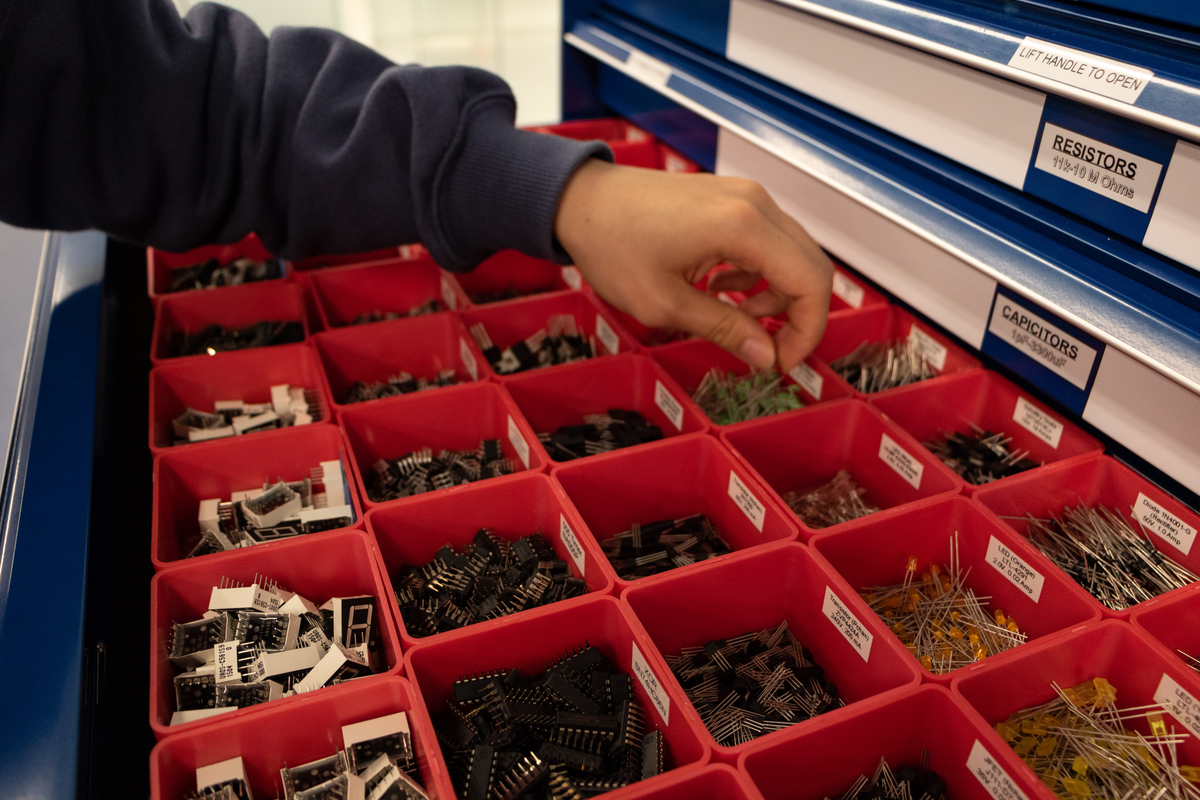STARS Program at Yale receives donation for expansion
Associate Dean of Science Education Sandy Chang and Yale College’s Development Office secured funding to expand the STARS program for FGLI students researching STEM.

Zoe Berg, Photo Editor
The Science, Technology and Research Scholars Program has experienced its largest expansion to date, connecting more first-generation, low-income students to research and STEM opportunities at Yale.
The program is directed by Sandy Chang ’88, associate dean of science education at Yale, who said that one of his biggest motivations in taking the position was to direct the STARS program. This year, through the Yale College Dean’s Office, the program is accepting over 200 first-years into the landmark STARS I program and nearly 50 juniors and seniors into the STARS II program.
“Though STARS I was originally a tutoring initiative for women and underrepresented students to help navigate their STEM education, it has now evolved to include peer-mentoring, access to research opportunities, networking and career planning in STEM fields,” Chang said.
STARS I specifically targets first-generation, low-income women and students of underrepresented populations in STEM to support and enhance their first-year education and increase retention in STEM fields to promote diversity. Previous STARS I and STARS Summer students participate as peer mentors to the first-year students to provide insight into succeeding in this new environment. Furthermore, the program hosts many seminars and workshops throughout the year to help students with building relationships, learning about STEM opportunities and preparing for a career in STEM after Yale.
The expansion of the program followed the trend in Yale College’s admission of a higher percentage of FGLI students over the past few years. Chang initiated the first expansion of the program by doubling STARS I to 107 students in 2020-2022, but required additional funding to increase the number of students further. The Yale College Office of Development worked closely with the STARS Program in order to secure this funding, and partnered with Anne Wojcicki ’96, the founder of ancestral genetics company 23andMe, whose foundation made a significant investment in the program.
“This gift was incredible,” Alison Cole ’99, senior associate dean for development, external affairs and special projects, wrote to the News. “It took great teamwork to make it happen.”
This increase in funding allowed STARS I to double its students to 200 and support a population made up of approximately 60 percent women, 90 percent of students on financial aid, students from 16 different countries and 50 Questbridge scholars. In addition to STARS I, Chang has initiatives in place to help students excel in STEM research in Yale; STARS Summer allows 30 rising sophomores in STARS I to conduct fully-funded summer research at Yale with a faculty member and take “Scientific Research: Process and Presentation,” a class intended to teach students how to read, write and present research.
In order to prepare STARS I students to conduct research over the summer, Chang and Charles Bailyn, professor of astronomy, teach year-long courses called “Perspectives in Biological Research” and “Perspectives on Research in the Mathematical and Physical Sciences,” respectively. These classes are intended to teach students how to read and write scientific papers and grant proposals, and high-achieving students in the class receive funding to conduct research at Yale over the summer. These two classes add 36 first-year students to the 30 already in STARS Summer.
Finally, Chang expanded the STARS II program from 20 juniors to nearly 50. This program funds juniors for four semesters of scientific research at Yale, including summers; supports attendance at scientific conferences to present their research and provides mentorship from graduate and MD-PhD students. This program has proven successful in its mentorship and preparation of students for graduate and medical school, boasting a 95 percent acceptance rate for its medical school applicants.
“Fundraising for STARS and other programs that support FGLI students is a top priority for the For Humanity campaign,” Abby Douglas, assistant director of student engagement at the Yale University Office of Development, said. “STARS is one of the amazing results of an ongoing collaboration with our community of students, administrators, alumni and donors and we look forward to continuing our track record of success in securing gifts of this nature.”
The STARS program was originally founded in 1995.
Correction, Sep. 12: This article has been updated with the correct titles for Douglas and Cole.







